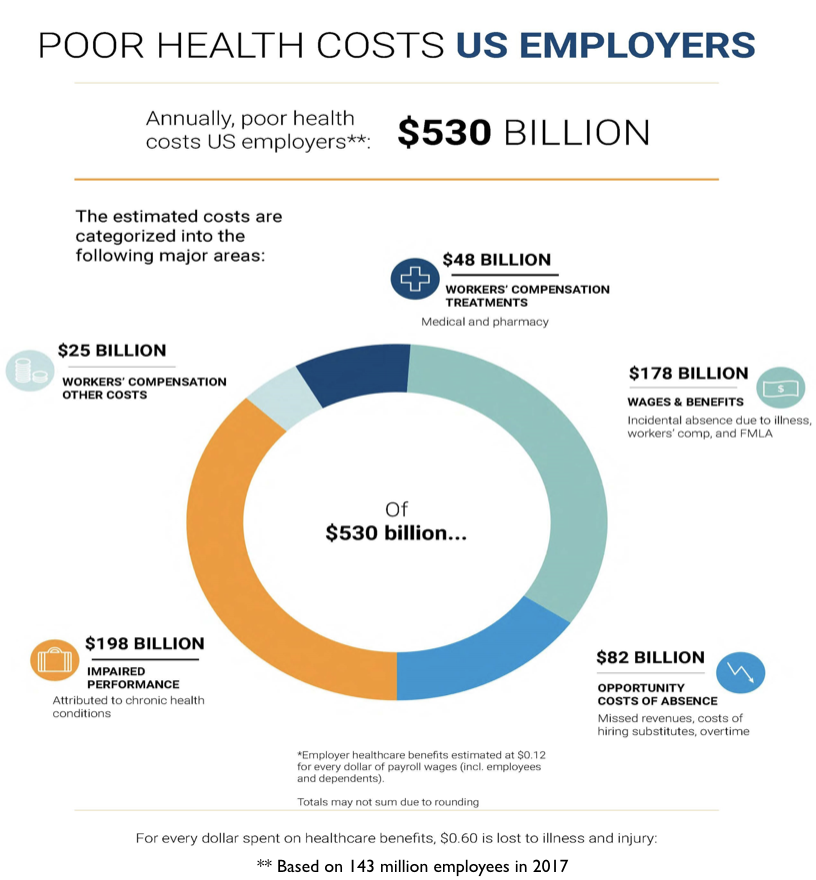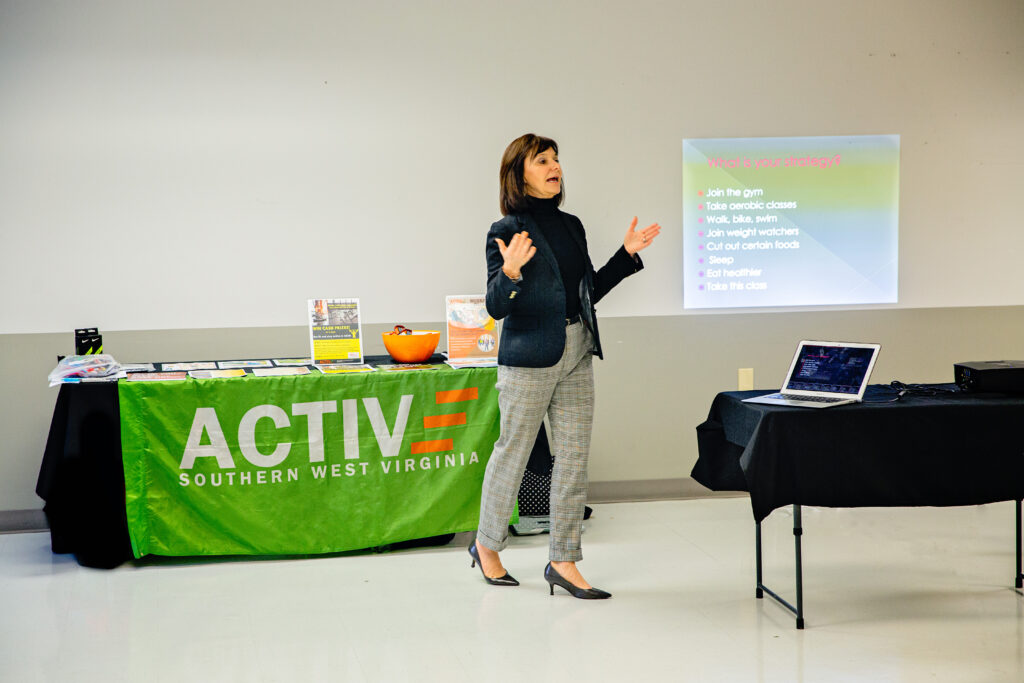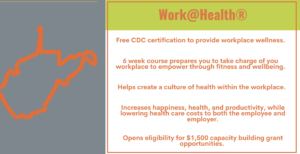Productivity: Absenteeism vs Presenteeism
Absent workers create an obvious production loss. But what about production lost when workers are present?

When workers aren’t able to clock in, whether it be from chronic illness, acute injury, mental health decline, or a combination of these, it’s called absenteeism. This causes an obvious stop in production if no subs or support is available to fill the temporary vacancy.
Then how can we lose production abilities, even when all staff are present, and the work seems to be “getting done”? Presenteeism is one of the biggest detriments to production. When employees are present physically, but not mentally, the work they produce may be far below standard or the optimal level. This is due to multiple factors, with the biggest being:
– A lack of general fitness capacity for activity.
Without a capacity to physically work, time can take a toll on workers. If they aren’t recovering properly and getting adequate opportunities for healthy lifestyle choices, their ability to work drastically begins to decline.
–A lack in nutrition or nutritional education.
Often, workers are in a hurry to eat throughout the day, while taking minimal time to stop working. This means fast and easy options are more likely when the clock is ticking. Add to this a lack of healthy choices in vending machines, no water access on site, and long days behind a desk or in the field, and you have a recipe for unhealthy nutritional choices.
-Stress and Loss of sleep.
Stress can come in many shapes and forms. It can be nearly impossible to clock out completely from the stress of work, even when home. This build up of stress over time can ultimately imbalance the bodies ability to regulate sleep. Without proper sleep cycles, the body can’t fully recover from a days work which leads to more mental and physical stress. This “stress cycle” often begins to affect other aspects of health like nutrition, physical activity levels, social energy levels, and especially preexisting chronic health conditions.
The addition of a wellbeing program at the workplace can mitigate these risks, and give workers the opportunity to feel appreciated by their employer, while creating a culture of health and wellbeing, conducive to increased production and morale.
2022 Workplace Wellness Conference and Awards: Speakers and Panelists

We are excited to announce our speakers and panelists for the 2022 West Virginia Workplace Wellness Conference and Awards. This year we will focus our efforts and discussions on successes and hurdles faced since Covid, how economic development in the Mountain State is heavily dependent on workplace wellness and healthy workers, and how experiential moments can add value and cohesion to the workplace.
Join us June 23 at the Stonewall Resort to learn from these great voices in the West Virginia workplace ecosystem:
Keynote Speaker
James Vance | Prevention Policy Branch Program Manager
West Virginia Division of Health Promotion and Chronic Disease
James brings a vast knowledge of experience and knowledge to the conference and the Active Southern West Virginia workplace wellness programming. As a CDC Work@Health® Master Trainer, James trains individuals throughout the state to promote healthier more productive workforces through changes in policy, systems, and environments in the workplace.
Fun fact about James? He sang back up once for Whitney Houston!
Presenters
Eric Murphy – “Mental Health and Equity in the Workplace”
WVU Center for Excellence in Disabilities
Lauren Weatherford – “Creating and Refining your Action Plan”
WVU Extension: Family and Community Development
Samantha Shawley-Brzoska and Lakin Davis – “OHSR Data and Analysis: Tracking Outcomes”
WVU Office of Health Services Research
Emily Murphy – “Experiential Moments: Team Building Activity”
WVU College of Physical Activity and Sports
Panel Discussions
“Successes and Hurdles”
Moderator: Michael Fisher: Active Southern West Virginia
Bridgit Arnold Workforce Region 1
Dana DeJarnette WVU Medicine East
Jeremy Morris Columbia Forest Products
Sarah Barton Coplin Health Systems
Casey Napier Cabbell-Huntington Health Department
“Workplace Wellness: Foundations of Economic Development”
Moderator: Cheryl Jackson: West Virginia PEIA
Michael Fisher Active Southern West Virginia
Corey Lilly City of Beckley
Dave Lavender West Virginia Development Office
Jenna Grayson New River Gorge Regional Development Association
Compass Huntington: First Responder Resources

West Virginia first responders have one of the toughest jobs in the state. From the opioid epidemic to Covid-19 and everything between, these dedicated providers work tirelessly to keep the state going. Who is there to take care of their wellbeing though? The stress that accompanies the lifestyle of a first responder is unimaginable.
“Think about when you were in school, and you had a fire drill. You knew it was going to happen, but not exactly when. Now, imagine being on a 24 hour shift at an emergency base, where you have no idea what is going to happen or when- 5 calls in an hour? 1 call in a week? It’s completely unpredictable” says Austin Sanders, Program Manager with Compass Huntington.
“The Compass project is being designed to provide first responders with tools ahead of time which will improve their ability to deal with high-stress situations in the moment, as well as strengthening their resiliency to process any effects of that stress.”
Compass Huntington has changed the way that first responders can strengthen, recover, and cope with their unpredictable lifestyle. With a state of the art wellbeing center, Compass is able to focus care towards physical strength, stress relief, life planning, and the mental stresses that follow events that first responders witness daily.
To learn more about how Compass Huntington is changing the way to provide for West Virginia first responders, enjoy this article from the American College of Emergency Physicians or contact them at 304.840.8815.
Work@Health® Course: August 2022

Are you interested in free CDC backed and evidence based certifications that can qualify your workplace for $1,500 capacity building grants?
Is there a gap in the health and wellness of your staff and their ability to work happily and with minimal absenteeism?
By adding a workplace wellness program to your regular needs at work can decrease stress, decrease absenteeism and presenteeism, decrease costs to the employer and employee related to healthcare and disease, all while increasing happiness, culture, morale, and overall productivity.
We will be hosting our CDC Work@Health®certification course again beginning in August (Dates TBD depending on class participant availability). For more information enjoy our Work@Health® blog or contact our workplace wellness Director, Michael Fisher at Michael@ActiveSWV.com.

